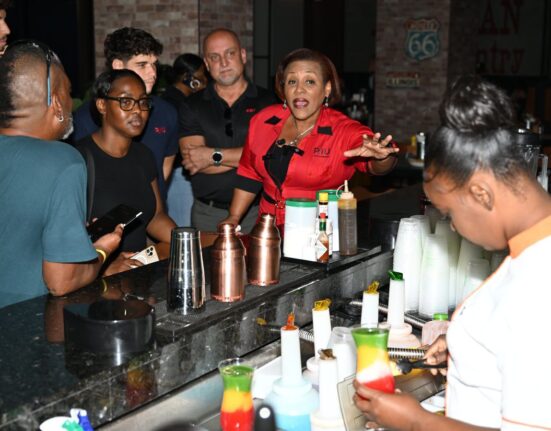
Jamaicans are, again, being encouraged to resort to non-violent methods of conflict resolution.
Minister of Education and Youth, Fayval Williams, emphasised that this is imperative to prevent disputes from escalating to fatal outcomes.
Williams made the statement while extending condolences to the family of slain Kingston Technical High School student, Michion Campbell.
The youngster was stabbed by another student on September 29 during a dispute at the institution, where she succumbed to her injuries.
Williams described the incident as “a tragedy on so many levels”, noting that “a young life [was] lost in a moment of anger and another life blighted by what was reported to be a senseless act of violence.”
Consequently, the minister added, “we must learn to resolve our disputes without resorting to violence.”
Williams said the Education Ministry welcomed the partnership forged with the Justice Ministry “to bring restorative justice practices to our schools, to help our students navigate a conflict-laden society.”
“It’s not that we are ever going to [be able to fully] do away with conflicts. But what we want to learn is how we manage conflicts, how we deescalate conflicts, how we get out of conflicts, how we not become a part of escalating conflict to a point where you have violence and death,” Williams said.
She also offered condolences to the family of Wolmer’s Boys School student, Raheem Shaw, who was shot by his father on September 28 after being mistaken for an intruder.
Williams was addressing the Ministry’s semi-virtual National Grooming Policy students’ consultation session at the Wolmer’s Boys’ School in Kingston, on Friday (September 30).
She noted that the session was hosted to help students and other stakeholders get a better understanding of the context and rationale for the guidelines developed and get their perspectives.
“This is a continuation in a series that will involve members of the public, principals, parents and students from different parts of the island, as we seek to develop consensus on this very controversial topic of dress and grooming in our schools,” she indicated.
Williams said schools are regarded as microcosms of the society and, as such, provide the foundation for students’ socialisation and preparation for entry into the wider world of work and civic engagement.
She emphasised that dress and grooming form a “critical part” of their development and are closely linked to character development.
“Within this context, the Ministry of Education and Youth is committed to the holistic development of our students in which the cognitive, spiritual, socio-emotional needs are nurtured.
“Even as we do so, we seek to ensure that all students have equal access to education, that a proper learning environment is maintained, and that the discipline to secure this is assured,” Williams maintained.
She informed that the ministry is also hosting consultations on the nutrition in schools draft policy, adding that there will be dialogue on future policies.





